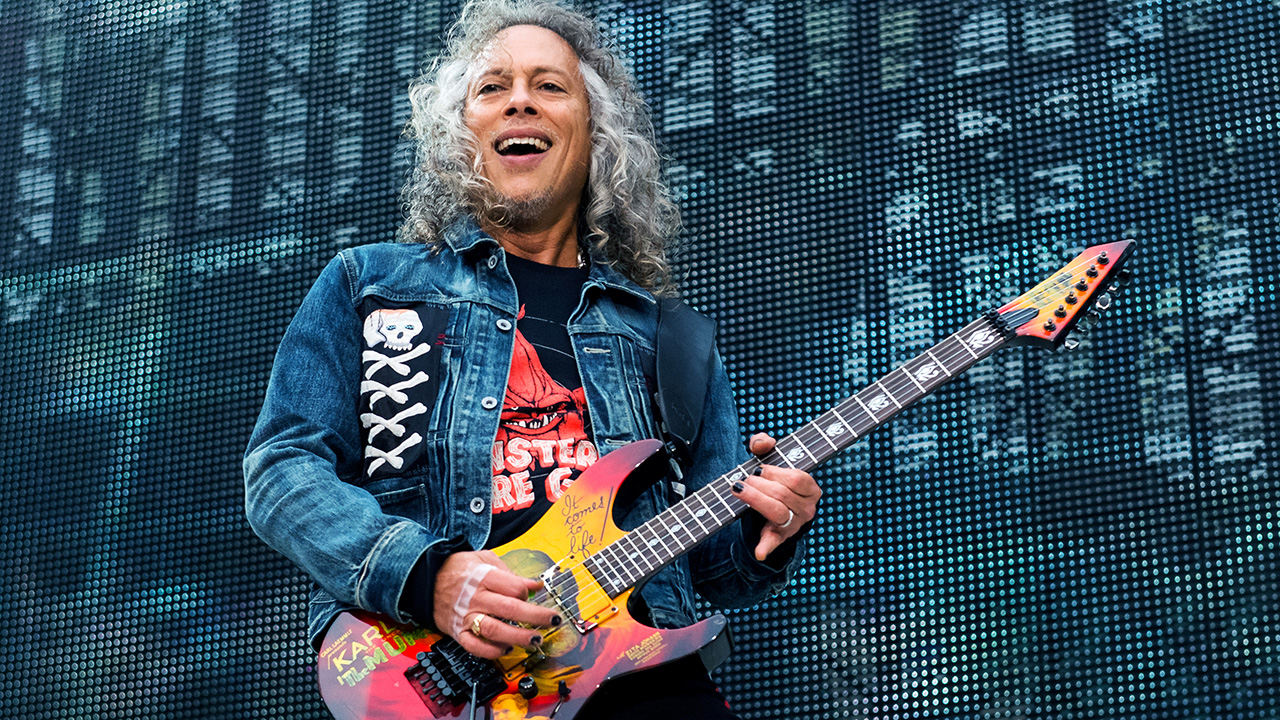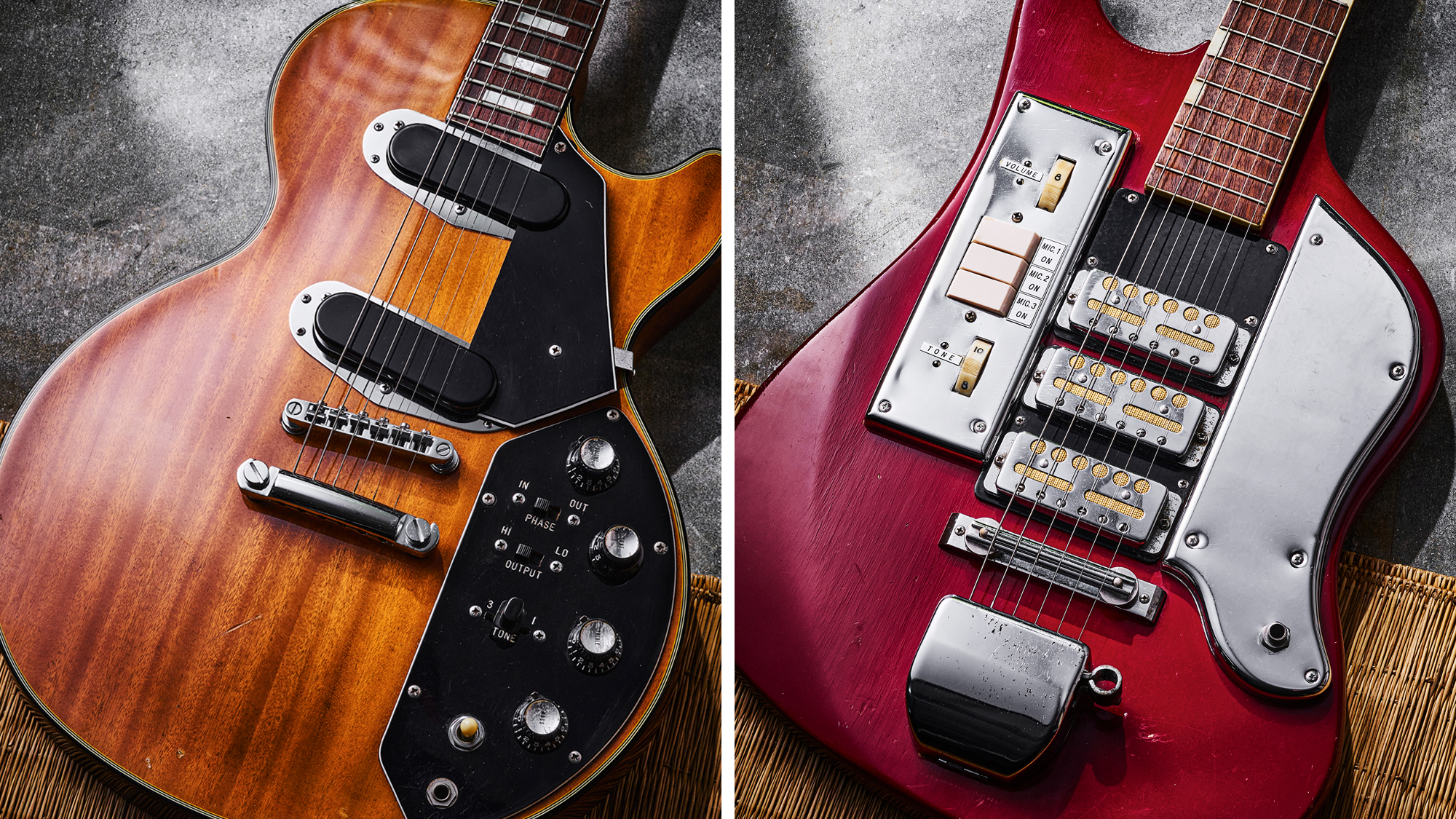“Don’t pick up your bass and act like you’re in Guitar Center”: Legendary studio bassist Randy Jackson shares his session secrets
Ready to go pro? There’s no one more qualified than American Idol judge and all-around music-biz insider Randy Jackson
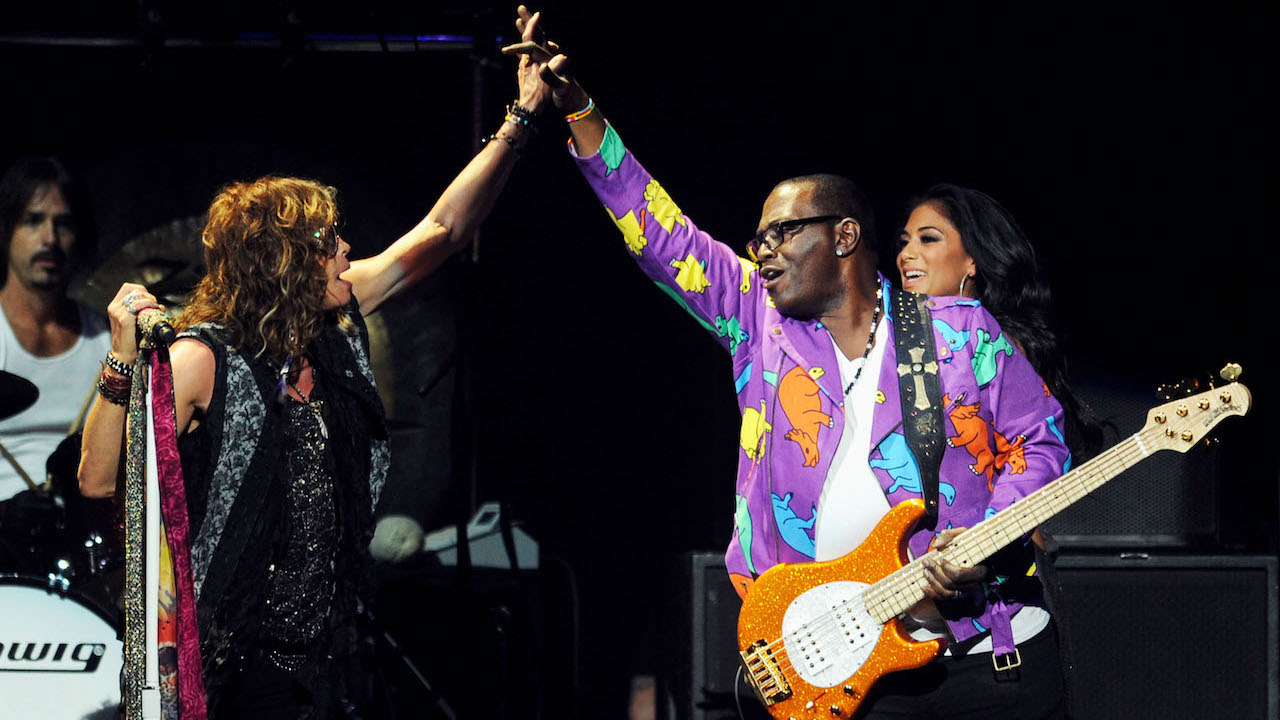
Since snagging his first gigs with fusion masters Billy Cobham and Jean Luc Ponty in the ‘70s, Randy Jackson has become one of the most successful session bassists in history, and one of the very few who has transitioned to the upper echelons of the music business.
Besides working on over a thousand gold and multi-platinum albums for artists like Journey, Whitney Houston, Madonna, and Elton John, Jackson spent much of the ‘90s as a label executive at Columbia Records and at MCA, where he was instrumental in the careers of stars like Gladys Knight and Mariah Carey.
His bass guitar instructional video, 1992’s Mastering the Groove, focussed on fundamentals Jackson felt were lost in an era of gratuitous technique; and his 2004 book, What’s Up Dawg: How to Become a Superstar in the Music Business, may be the ultimate guide to making it. Famously nicknamed “The Emperor,” Jackson would still be an industry legend even if his career had ended upon the advent of the phenomenally successful American Idol.
“There’s a lot of people who have been doing this job for a long time,” Jackson told BP back in 2007. “As soon as you walk through the door, we’re judging if this is going to work before you’ve even plugged that bass in. So, you have a choice. You can make this some fantasy playtime thing that you do on weekends, or it can become your career. Playing bass is like being a carpenter or a painter or working for NASA or McDonald’s – it’s a job. Wouldn’t you want to know everything there is to know about your job?”
Jackson’s first inkling of the studio life was a 1973 visit to L.A. to watch the legendary Chuck Rainey in action, so it was only fitting that we started our conversation with one if his favourite topics – mentors.
Who were your earliest mentors?
“I got started by taking lessons with this guy Sammy Thornton in my hometown of Baton Rouge. He played a Fender Precision – and everything he played, he made it feel good. Later I learned a lot from records – I loved Ron Carter, Miroslav Vitous, Stanley Clarke, Jaco Pastorius, Scott LaFaro.”
Get The Pick Newsletter
All the latest guitar news, interviews, lessons, reviews, deals and more, direct to your inbox!
What was it like to meet and hang with Chuck Rainey?
“To see Chuck Rainey in action while he was working on Donald Byrd’s Black Byrd album – I was 17 – to see him doing sessions, and to get to hang out with him – it was great. He was just the coolest guy; he created a part of who I am today.”
What did you do after those early gigs with Billy Cobham and Jean Luc Ponty?
“I played in Jeff Lorber’s band, made some records with Kenny G, and I made a record with Herbie Hancock. I hooked up with Narada Michael Walden in the Bay Area, and we made a lot of records with Aretha Franklin, Whitney Houston, Mariah Carey. These were very pure, great times. Just living through the music.”
You joined Journey in 1983 and played on Raised on Radio
“Playing with them was one of the greatest experiences ever. Steve Perry is one of the greatest vocalists, period, and Neil Schon is an unbelievable guitar player. Jonathan Cain is a brilliant songwriter, and Steve Smith? One of the best drummers ever.”
In your book, you say that you hit a wall with the session player thing?
“I made a couple of albums with Bruce Springsteen that I love. Bob Dylan, too. I’ve been blessed to be around some great people. I was working with Dylan, Springsteen, Celine Dion, Elton John, Lionel Richie, Billy Joel, Mariah – all these greats. I had to pinch myself, but I needed to figure out where I was going to go next, because it couldn’t get any better. It was already a dream come true.”
So you got into A&R at Columbia Records
“I always knew a lot about the business and it has always helped me. I encourage musicians to learn as much as they can about the business; you’re selling your wares, selling your music, and you need to know all that you can.”
Do today’s bass players need different skills than they did in the past?
“We’re living in a time now where you need to know as much as you can about music. You need to become as great as you can. That’s why you need to narrow down your field and decide what category is the one for you. As soon as you do that, you can decide what it’s gonna take for you to become great in that area.”
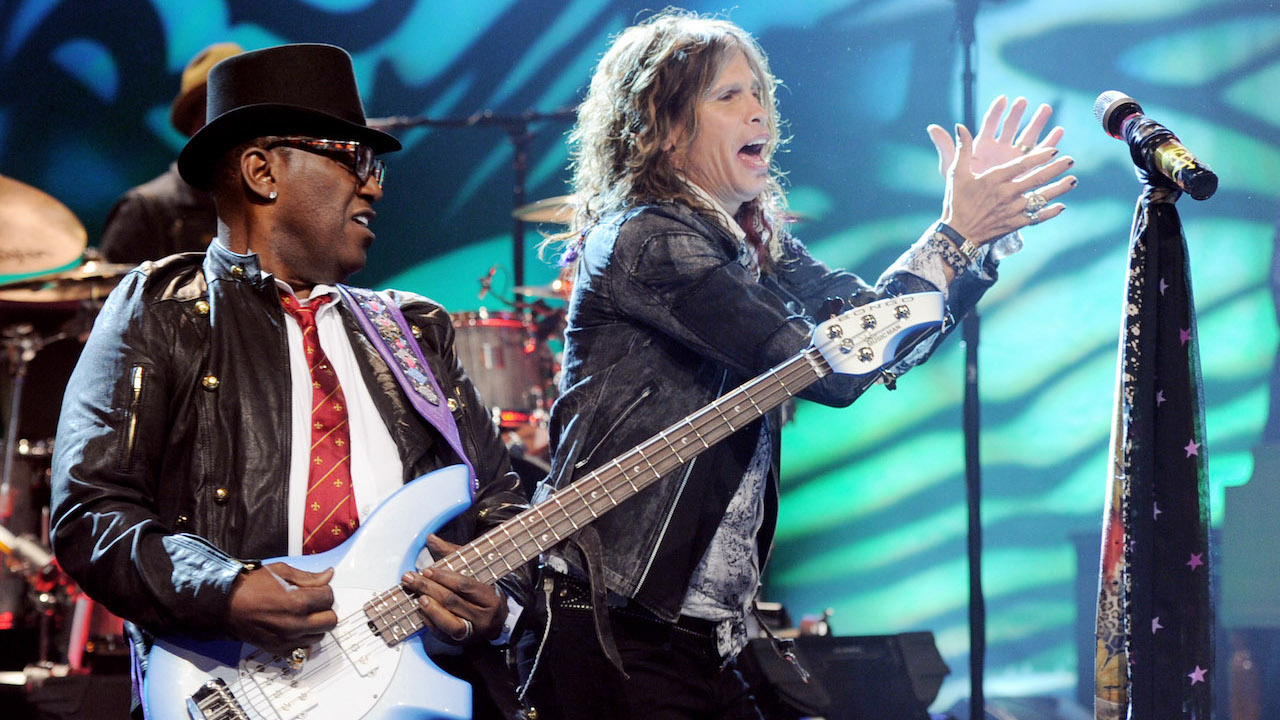
What if someone doesn’t have lofty ambitions?
“There’s nothing wrong with that. You know what I tell most young bass players? Just be who you are. Live in the moment – go with it. Don’t try to force that moment to be something else.”
What else do you look for in a bass player?
“I like people who actually listen to the music, who try to get into the soul of what the song is about. Don’t pick up your bass and act like you’re in Guitar Center and play 18 notes a second. This is not about shredder time. It’s about listening and reacting to the music.”
Is it important to play many different styles?
“Times are different now. That kind of player, the ‘bassist for all seasons’ – people like myself, Freddie Washington, Will Lee, Nathan East, Neil Stubenhaus – I don’t think that particular kind of player is being created anymore. Victor Wooten doesn’t do that. Oteil Burbridge doesn’t do that. They’re unbelievable players, but they don’t do that.”
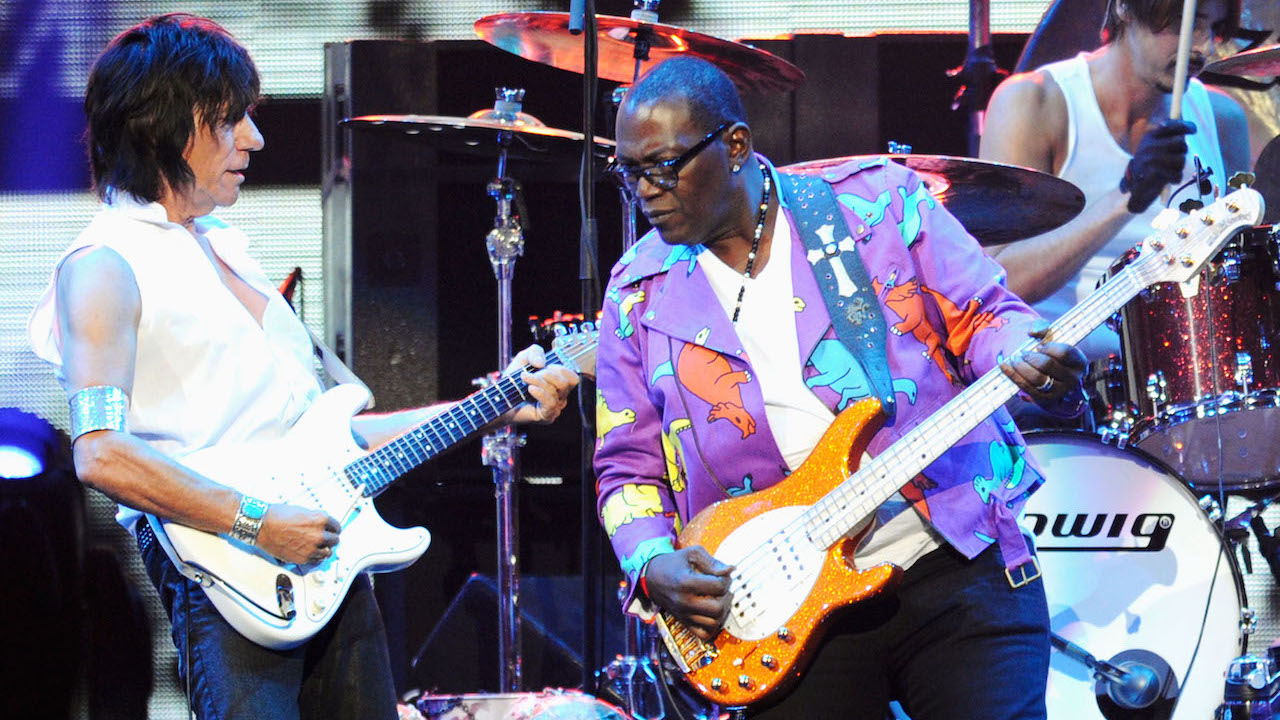
“A kid that comes out now sees Jay-Z over here, Justin Timberlake over there, the Killers, the Fray over here, Metallica over here, Jill Scott, the Roots…he has to decide where he’s gonna go. As a producer, if I’m doing a rock record, guess who I’m gonna call? A rock and roller. I want authenticity on my records.”
You talk about the roadmaps to success in your book.
“If you’re a bass player who wants to be successful, go back and soak up all those old grooves. Really get involved, get into it – learn what all that’s about before you go charging into the future.”
What do you think when you look back on your career?
“My whole thing was always about keeping it real and living in reality. I was just a kid growing up in Louisiana that loved music, and music is still the centre of everything I do in my life – American Idol, my solo record, the artists I manage, everything. So I’m in the middle of living out my music dreams.”
“I asked him to get me four bass strings because I only had a $29 guitar from Sears”: Bootsy Collins is one of the all-time bass greats, but he started out on guitar. Here’s the sole reason why he switched
“I got that bass for $50 off this coke dealer. I don’t know what Jaco did to it, but he totally messed up the insides!” How Cro-Mags’ Harley Flanagan went from buying a Jaco Pastorius bass on the street to fronting one of hardcore’s most influential bands










